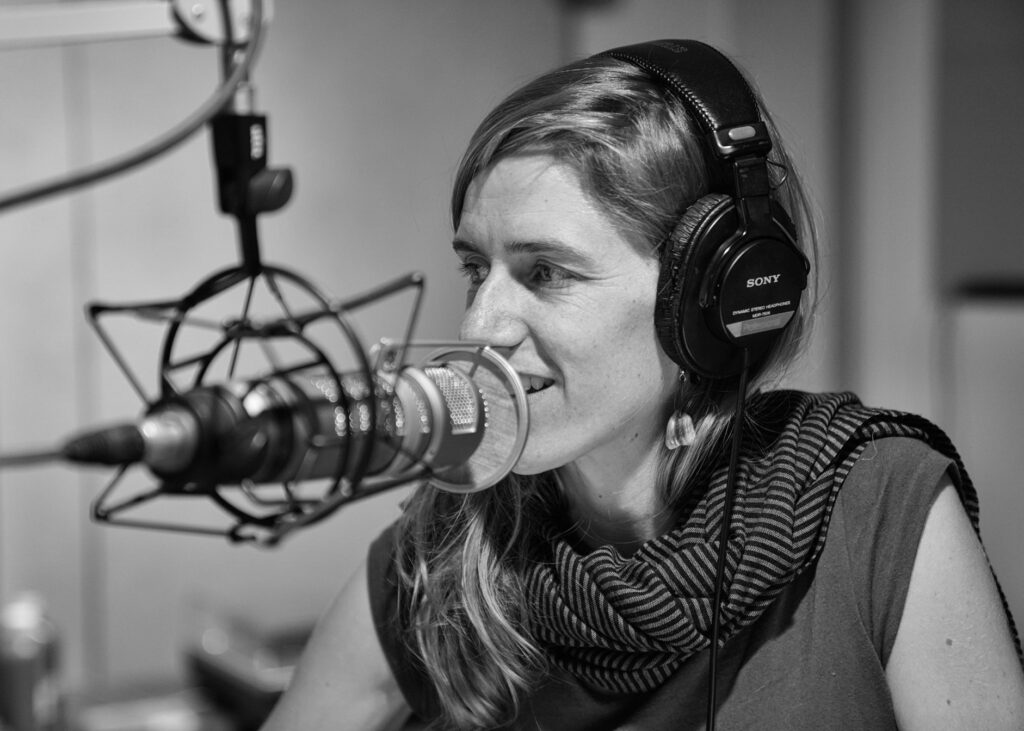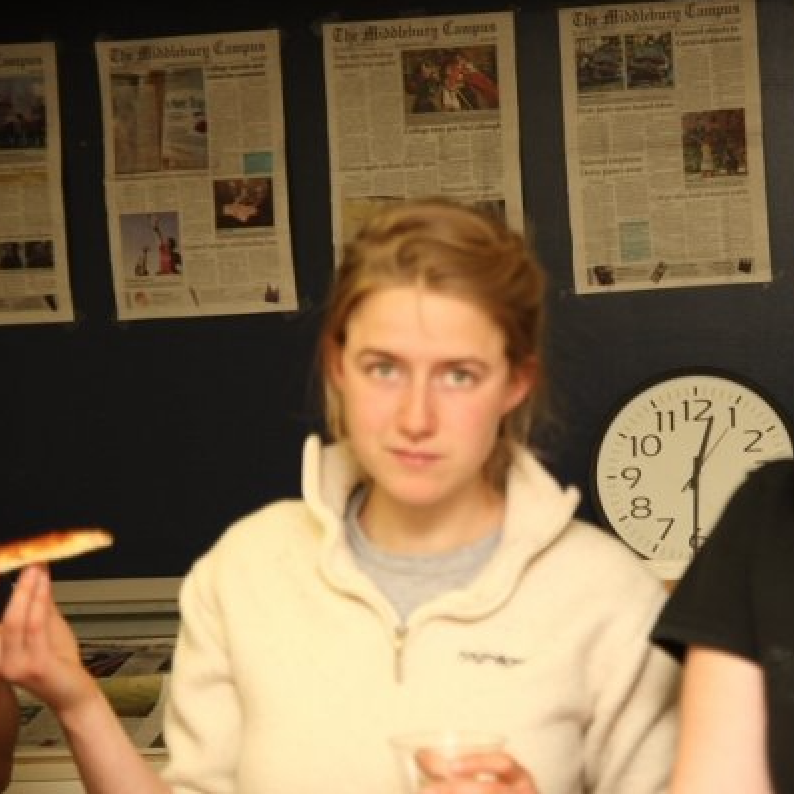
Photo of Angela Evancie courtesy of James Napoli
Editorial intern Ashling Walsh ’24 speaks with former NER intern Angela Evancie ’09 about the rise of podcast journalism, navigating a career in radio, and prioritizing editorial inclusivity.
Ashling Walsh: Where are you now, geographically and professionally?
Angela Evancie: I live in the Upper Valley of Vermont, quite close to the New Hampshire border, and I’m the Senior Vice President of Content at Vermont Public (formerly Vermont Public Radio and Vermont PBS).
AW: You received a master’s degree from the Middlebury Bread Loaf School of English. How did that course of study lead to public radio? What were some of the steps in between?
AE: I had already started to explore a career in radio when I decided to go to Bread Loaf. I was considering journalism school but was ultimately swayed by the prospect of returning to the mountain (I had attended the Bread Loaf Writers’ Conference while I was a student at Midd) to immerse myself in stories. The program’s summer schedule was also compatible with my life at the time—I was trying my hand at freelancing and wrapping up a Middlebury Fellowship in Environmental Journalism. I was also working various part-time jobs in the wake of the Great Recession, and in that wonderful and exhausting cycle of moving every year. I lived in Oregon for a time, and spent one of my Bread Loaf summers studying in Santa Fe.
There was one inflection point I’ll always remember: I had been offered a communications job at a natural history museum in Oregon and I was vacillating about whether to take it. One day I drove to the museum for a meeting with my future boss. While I was sitting in the car, I saw that I had a voicemail. It was a message from This American Life. I had pitched them a story on a whim and they wanted to take it. The person who called me was Sarah Koenig—she had not yet created Serial—and she was going to be my producer on the piece.
I took it as a sign that I shouldn’t go into communications quite yet. I turned down the job at the museum, did the TAL story, and then applied for an internship at NPR. (I was still eligible as a graduate student. Thank you, Bread Loaf!) I was lucky to land a posting with the arts and music teams—my desk was about 25 feet from the vaunted Tiny Desk—and that led to my first position, over 10 years ago, as a digital producer at Vermont Public Radio. And I stuck with Bread Loaf, too—during my first few years at VPR, I used my vacation time to finish up my coursework.
AW: Tell us about Brave Little State.
AE: I created the show in 2016. It was born from a desire to craft longer stories than are allowed in a typical radio newscast. I wanted time to build narrative tension, go deep with my sources, and celebrate Vermont’s singular sense of place. The show is also grounded in a commitment to editorial inclusivity: Rather than decide our own story topics, we source questions from our audience and ask them to choose what we cover by way of a public vote. Our winning “question-askers” become central characters in each episode, and their particular preoccupations shape our reporting. One of our mottos is “our journalism is better when you’re a part of it.” It’s a proven method for building trust in media, a really fun way to report, and it also yields spectacular stories. Brave Little State has won multiple national journalism awards, including the 2021 Edward R. Murrow Award for best podcast.
AW: How does someone go about the jump from literary journalism to producing and hosting a podcast?

AE: I found the jump to be quite natural. Not all podcasts are story-driven, of course, but if you’re going to make a long-form narrative podcast, you’re going to play with all the same techniques that you would in writing, say, a magazine piece. A strong lede that pulls in your reader or listener. An obsession with keeping their attention so they don’t get bored and drop off. Understatement, nuance, ambiguity. You’re dealing with complicated people and complex issues, and you can revel in that mess rather than trying to force some unifying logic.
AW: How have podcasts revolutionized contemporary journalism?
AE: One of the reasons I was so drawn to podcasting in my early career is that it felt like there were fewer gatekeepers. People were trying new things, and finding audiences. Public media led the way in incubating ambitious shows that investigated overlooked stories and cracked open difficult conversations. More recently it’s been interesting to see legacy newspapers such as the New York Times and the Washington Post scoop up talent and build formidable audio arms. And there’s a whole for-profit aspect of the podcasting world that didn’t previously exist. Mostly I’m gratified to see that the format has gained the prestige—and cultural criticism—that it deserves.
AW: What are some of the takeaways you have from your time as an NER editorial intern?
AE: Go big when you pitch! And place your stories everywhere you can to build your portfolio. One clip often leads to the next.
AW: If you could go back in time and give her advice, what would you tell your Middlebury self?
AE: Don’t decide your major too early. Study widely, study multiple languages, and make an effort to socialize outside your bubble of closest friends. There are so many incredible people in your class, and you will realize at your five- and ten-year reunions that you all have way more in common than you thought when you were living in your cozy niches.